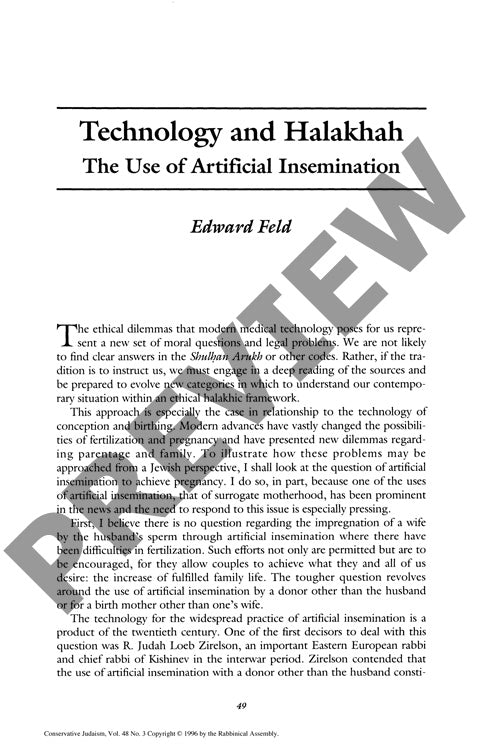Technology and Halakhah the Use of Artif
Couldn't load pickup availability
When artificial reproductive technologies emerge, they force religious legal systems to grapple with unprecedented questions about human identity, parenthood, and the boundaries of traditional family structures. Through analysis of classical rabbinic sources, particularly the opposing views of Rabbi Judah Loeb Zirelson and Rabbi Moshe Feinstein on whether artificial insemination by donor constitutes adultery, a complex picture emerges of how Jewish law (halakhah) confronts modern reproductive capabilities. Traditional halakhic analysis reveals that while artificial insemination using a husband's sperm is permissible and encouraged, donor insemination introduces significant challenges regarding adultery, lineage, and child welfare. Anonymous sperm donation proves especially problematic by severing children from knowledge of their biological origins and personal history—a rupture that fundamentally reshapes concepts of human identity. The introduction of surrogate motherhood adds further ethical complications, including potential exploitation of economically disadvantaged women and the creation of conflicted family structures. Although artificial insemination may not technically constitute adultery under Jewish law, it raises profound questions about sexuality, responsibility, and the commodification of reproduction. Addressing these modern reproductive technologies requires moving beyond surface-level textual interpretation to develop expanded categories of Jewish law and ethics that can adequately respond to unprecedented technological capabilities.

More Information
-
Physical Description
-
Publication Information
Published 1996
ISBN
-
Publication Credits
Edward Feld

